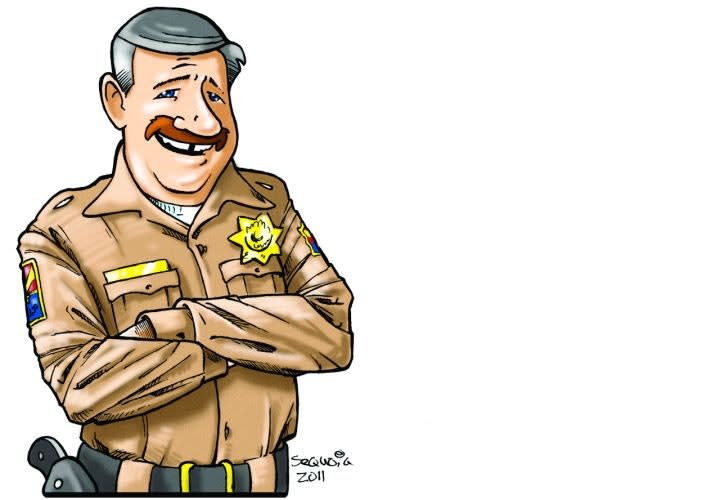So the other morning I was sitting in the Seattle airport talking to some of my crimefighter friends from the Port of Seattle Police, drinking a soy latte (which is what you do when you are in Seattle) when up walked their assistant chief, Rod Covey. Immediately my glove hand started to burn, not from the coffee but from the memory of catching his darn throws from center field when I was playing catcher on our academy staff softball team.
Rod was my commander in my last stint at the academy, and we played softball year-round in Tucson on a fairly good team. Rod was born with a 30-06 for an arm and routinely gunned down poor runners trying to tag up and head home thinking they had it made. I loved everything but the sting when I caught it on the palm … but, then the look on the runner's face made up for that. Then we were off for pizza, and after that PT at 5:00 the next morning.
What great memories I have from my days working at the academy, where I do believe we had a top staff and remarkable cadets, many of whom have remained friends to this day. Cadets work hard but we always tried to make time for play, and the final softball game for each academy class could get pretty rough when the staff just had to defeat the cadets. Intuitively we sensed the stress of academy life needed to be relieved. Little did we know that science would reaffirm both our providing the cadets some "playtime," and the reduction of the staff's own stress that came from time on the ball field.
In his book, "Play," Stuart Brown, M.D., explains how play doesn't just reduce our stress and open our minds, it also exercises and grows our brains. Yep, to grow some brain, play a game. He describes how most creatures actually need play, and humans who don't get enough as youngsters grow up to be dysfunctional, even killers. Brown describes the Texas Tower shooter, Charles Whitman, as someone who had "a lifelong lack of play." Quick, toss your kid a Frisbee!
Based on feedback I get from lots of my readers, most of us have difficulty finding time to do the things we enjoy and want to do. When I write about changing a bad habit, or prioritizing things to find life fulfilling, I get e-mails describing working twelves, paying off exes, child support, new house costs, and the like. I know these things make it tough to find time for ourselves and our priorities since mortgages, car payments, and taxes must be paid. But sometimes you can kill two birds with one … well … throw.
Need more time with your kids? Play catch, take them shooting, try playing a Wii videogame with them (be prepared for a whipping). This holds true for your wife, husband, partner, boyfriend, girlfriend, or dog as well. All of us need play, but just what is it? Is it only playing catch, shooting, or fishing that counts? Nope, says Brown. It is anything that puts our brain in that growth state, anything that is done for its own sake voluntarily, something inherently attractive to you, an activity that gives you a sense of freedom from time and allows improvisation.
All of us had tons of these opportunities when we were young. But often, involved in our profession, we don't take time out for enjoyable activities. Dr. Kevin Gilmartin, my favorite cop psychologist, in his must-read book "Emotional Survival," calls these "usta's!" Our forms of play such as "I usta hunt, I usta fish, I usta bowl, etc." often lead to "I usta be married" and other such sorrows. If you find you have lots of "usta's" and very few "I do's" you might be heading the wrong way.
Both books point out how these forms of play, whatever play is to you, not only provide us with coping skills but also make us more resilient, more able to deal with whatever comes at us in life. In law enforcement we face the stress of high-risk calls and administrative stress, not to mention the financial pressures of the modern world. Therefore we need to play now more than ever.
The only caveat is don't get so addicted to play that you neglect other things, like your family or job. But I don't think that is the problem I hear from my law enforcement readers; rather, it's a serious lack of play.
So go fishing, play some Nintendo, cook, tie a fly, reload a cartridge, throw a pass, or stand behind home plate waiting for a crazy hard throw from center field to come in, and shock that goofy firefighter tagging up and heading home.
Dave Smith is the creator of "Buck Savage" and a retired law enforcement officer from Arizona. Currently, he is the lead instructor for Calibre Press' Street Survival seminar.













